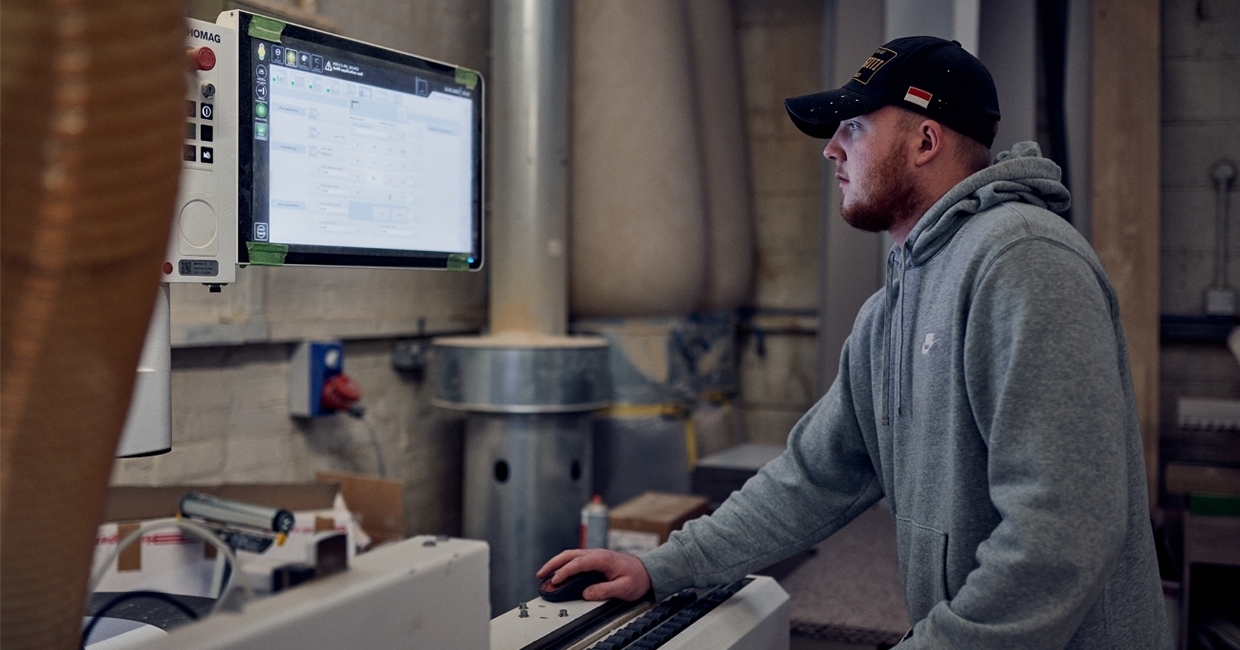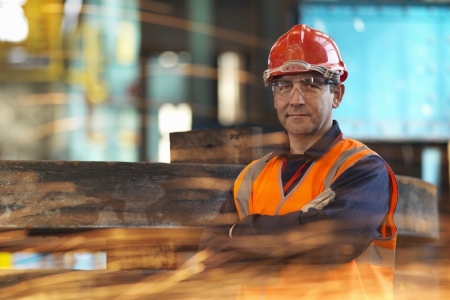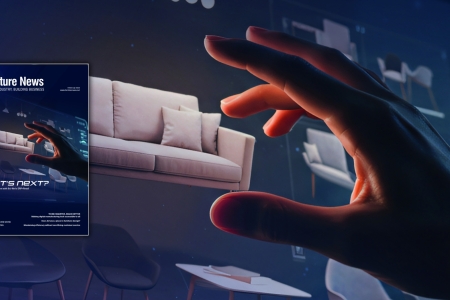Thanks to new Government funding, Made Smarter, the industrial digitalisation movement created to help drive manufacturing productivity and growth among SMEs, can now be accessed by furniture businesses right across England – boosting digital skills in the sector, bringing businesses and R&D together to develop new technology, and helping makers embrace new digital tools, explains Will Kinghorn, the automation and robotics specialist at Made Smarter Adoption in the North West …
What is Made Smarter?
The Made Smarter Adoption programme is an initiative backed by the UK Government, that supports manufacturers to adopt digital technologies to boost productivity, drive innovation, and create sustainable growth.
The programme helps SME manufacturers adopt technologies through a suite of support, including: digital transformation workshops to create a digital roadmap; impartial and expert technology advice; leadership and skills training; and grant funding for digital internships and technology projects.
Since launching in the North West in 2019, the programme has expanded across England – including the South East, South West, East of England and London earlier this year, after the Government’s £16m investment into the programme’s expansion.
How do our manufacturers’ technological capabilities compare to those in other developed nations?
A decade ago, UK manufacturing was struggling post-financial crisis, with labour productivity -20% lower than in the US, France and Germany, largely due to underinvestment in advanced technologies and continued reliance on low-skill labour.
To address this, the UK Government launched its Industrial Strategy in 2017, aiming to boost productivity, jobs and economic performance through investment in skills, industries and infrastructure.
A central part of this was the Made Smarter Review, led by industrialist Juergen Maier, which highlighted the transformative impact of digital technologies like AI, robotics and 3D printing on early-adopting manufacturers. It emphasised four priorities – innovation, adoption, leadership, and skills – with a strong focus on empowering SMEs through a National Adoption Pilot to drive future industrial growth.
Made Smarter Adoption launched a new kind of business support service for manufacturers that tackled the key barriers preventing them from adopting technology – time, knowledge and capital.
Naturally, offering funded access to expertise around digital strategy, technology and skills were big draws for manufacturers. But establishing genuine buy-in for digital transformation meant ensuring support was quick, simple, and high impact.
This meant creating a set of short, focused interventions to help time-poor SME leaders. It also meant showing, rather than just telling, people how technology adoption is done properly, and simplifying the jargon around terms like ‘Industry 4.0’ to ensure it was attractive and accessible to businesses of all sizes and digital maturity.
But crucially, it established the core principle that people are at the centre of adoption, and technologies are valuable tools.
What are the barriers preventing furniture manufacturers, in particular, from embracing automation and technology?
The barriers are a mix of financial constraints, skill shortages, cultural resistance, and tech suitability issues – particularly acute due to the bespoke, craftsmanship-focused nature of UK furniture manufacturing.
What different types of technology might be applicable?
Software systems are the most widely adopted technology in the sector, providing a range of functions that help manage business operations. These include tools for order management, stock control and production planning, which streamline processes and improve efficiency.
Computer-aided design (CAD) software has been standard for many years, but recent advances in design automation now allow manufacturers to create bespoke designs based on a house style. This not only speeds up the design process but also simplifies production.
On the shop floor, automation is increasingly popular. Robots are being introduced for tasks like machine tending, polishing, sanding and spraying – making them a practical and accessible solution for repetitive or physically demanding work. It’s also valuable to consider automating support tasks, especially those that currently require skilled operators. Activities such as packing, palletising, labelling and kitting are all well-suited to automation and can free up skilled staff for higher-value tasks.
Artificial intelligence (AI) is also gaining traction, often in ways that are more accessible than expected. Free-to-use AI tools can assist with marketing content creation and search engine optimisation (SEO). In many cases, AI capabilities are already embedded in the software businesses use, either as part of a subscription or through add-on plugins. These tools can support sales forecasting, production planning and inventory management – helping companies make smarter, data-driven decisions.
The Industrial Internet of Things (IIoT) is also making a significant impact in forward-thinking furniture factories. By connecting machines to sensors and cloud-based monitoring systems, manufacturers can gain real-time insights into machine performance, maintenance needs, and overall equipment effectiveness. This kind of machine monitoring helps reduce unplanned downtime, optimise productivity, and extend equipment life through predictive maintenance. Additionally, IIoT systems can track energy consumption at a granular level, enabling businesses to identify energy-intensive processes and implement strategies to cut costs and reduce their carbon footprint – supporting both profitability and sustainability goals.
On top of that, Augmented Reality (AR) is transforming the customer experience, particularly in bespoke and high-end furniture retail. With AR-enabled apps, customers can now use their smartphones or tablets to visualise products in their own space, helping them see exactly how a sofa, table or cabinet will look and fit in their room before committing to a purchase.
This interactive experience not only boosts customer confidence and satisfaction but can also reduce returns and improve conversion rates – especially in online or hybrid sales environments. For manufacturers, offering AR capabilities adds a modern, value-added service that strengthens brand appeal and opens new sales opportunities.
Other than providing funding, how does Made Smarter help clients onboard new technology?
Listening, learning, and adapting to the needs of manufacturers has ensured the programme remains relevant and practical, six years on from its launch. It has established a robust delivery model which starts by taking companies through a fully-funded digital transformation workshop.
The process involves a technology adoption specialist supported by the organisational workforce development team working with the business to identify the most effective technologies to overcome operational challenges and skills gaps. The result is a digital strategy roadmap containing a series of high-impact recommendations for the journey forward.
These recommendations include offering access to one of Made Smarter’s leadership programmes. The Leading Digital Transformation programme is a fast-track course to create digitally informed, empowered leaders, armed with a bespoke digitalisation strategy. Meanwhile, the Leading Change for Digital Champions programme offers support for those leading change operationally on the shop floor, and is creating a network of digital champions who support each other with shared learning and experience.
The digital internships programme pairs tech-savvy university students with businesses to help them explore and adopt technologies.
We have also created a free downloadable guide specifically to help SME manufacturers in the furniture sector (the Guide to Digital Technology in the Home Goods and Furniture Manufacturing Sector).
Read the rest of our interview with Will in July's issue.
Pictured: The new bespoke Customer Management System in action at Starlight Bedrooms










